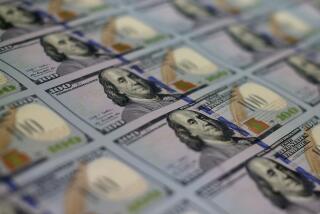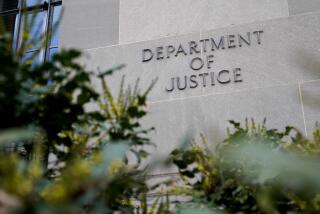Medical âMarketingâ at Public Expense
Federal prosecutors are calling it the biggest medical fraud case in U.S. history. National Health Laboratories, one of the nationâs largest health-testing companies, agreed to refund $110 million to government health-insurance programs, plus another $1 million in fines. A top official of the La Jolla-based firm pleaded guilty to submitting false claims to Medicare, Medicaid and the Civilian Health and Medical Program of the United Services plan for military defendants. And prosecutors warn that the fraudulent scheme--which involved tacking on unnecessary blood tests to other blood tests ordered by doctors--is far from uncommon. U.S. Atty. William Braniff said that the fraudulent practices used by National Health Laboratories are widespread and that other labs are also under investigation.
Deceitful practices in medicine may account for anything from $20 billion to $75 billion of the nationâs health-care bill each year. The General Accounting Office leans toward the higher figure, suggesting that fraud could eat up a full 10% of the nationâs $800-billion health-care budget. (Thatâs on top of the $200 billion that Consumer Reports estimates is wasted each year in administration and superfluous medical care.)
âHealth-care costs are unquestionably one of the most uncontrollable items in our economy,â said Braniff. âMarketing schemes like the one exposed (at National Health Laboratories) are a primary reason for these escalating costs.â
The way the National Health Laboratories scheme worked speaks volumes about the lack of checks and balances in the current health-care system. In 1987, National Health Laboratories began telling doctors that to get an ordinary blood work-up they must also order two additional tests--one for cholesterol, another to measure iron in the blood--even if their patients didnât need these tests. The company created the impression that all three tests came for one basic price, but it was actually charging health-insurance companies for each test, Braniff said; the company also took away the doctorâs ability to order only one of the tests because they were not listed separately on the order form. In its defense, National Health Laboratories stated that âthe company understood that it was following the common industry practice of marketing a combination of tests together as one basic profile.â Whatâs frightening is that Braniff suggests this type of âmarketingâ may well be the common industry practice.
The result? While no one would claim that fraud alone is the cause, the cost for Medicaid, the federal program that provides health care for the poor, is now rising at an incredible 30% per year. âMarketingâ schemes such as the one used by National Health Laboratories canât help.
More to Read
Sign up for Essential California
The most important California stories and recommendations in your inbox every morning.
You may occasionally receive promotional content from the Los Angeles Times.










